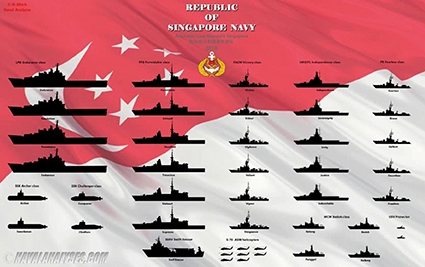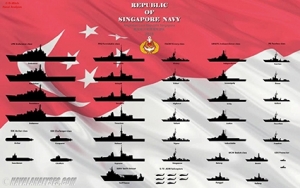What Singapore Can Teach Georgia
Op-Ed
Due to Singapore's size, location and neighborhood, good parallels can be made with modern Georgia.
Today, Singapore, which in Malayan means "the city of the lion," is one of the richest countries in the world. In Georgia, it has been fashionable for more than a decade to speak about Singapore’s economic success and how this can be emulated by Georgia, but little has been said that the real Singaporean achievement lies in its ability to build good, constructive relations with its neighboring states, which, like Russia to Georgia, are large, geopolitically hostile and economically more powerful.
Such success for Singapore came not just through the right economic policies, as its politicians managed to build the right foreign policy in all directions. Indeed, Singapore had even larger geopolitical odds against it when its leaders set out to build a state at the southern tip of the Malaysian Peninsula; even larger threats than today’s Georgia.
Take several examples. By the time of its establishment in 1819, 70% of Singapore’s two-million inhabitants were ethnic Chinese, while in the surrounding territories there were around 100 million people of Malayan, Indonesian and Vietnamese nationality. When, after World War Two, Singapore became independent, it faced a direct challenge to its nascent state from various large ethnic groups. Georgia had similarities in that regard, but after the dissolution of the Soviet Union, when the country was left facing its larger neighbors with ethnic minorities on its soil, Tbilisi failed to offer a constructive approach to the preservation of the state sovereignty.
Back to Singapore: its politicians recognize that China, Malaysia, Indonesia and Vietnam are potential adversaries not only in military and economic terms but also in ethnic politics. The problem is complicated by the fact that these countries are Singapore’s geographically close neighbors. Singaporeans have learned to live with large and rival neighbors and that is where it could serve as a good lesson for Georgia in its relations with Russia. But for its success, Singapore realized that it was necessary to create a strong economy and military power to limit Chinese, Indonesian and Malaysian challenges. Today, small Singapore, with roughly 3.3 million inhabitants, has almost the same number of airplanes as the 23-million-population of Australia. Moreover, Singapore has a large naval fleet with powerful attacking capabilities. It sees that the only real possibility to maintain its independence among its big Asian neighbors its to show them what it is ready to do (through military operations) to protect its assets. There are many similarities with Georgia: Russia’s size, military and economic capabilities and geographic proximity, present the need for Georgia to build constructive relations with Moscow.
Singaporeans understand that a war with China and other neighbors would be disastrous for the country, thus its leaders had to create a state-of the art foreign policy where military power and diplomacy intersect to such a level so as not to create troubles with China and Malaysia. At the same time, this policy also precludes those same countries from taking direct military action against Singapore. The main achievement of Singapore's diplomacy is that by its economic and military potential, large neighbors are forced to think and act less in terms of hard power.
Thus, small Singapore has learned well what Georgia has yet to in its foreign policy: live with hostile neighbors but reap the benefits at the same time. A new, much higher level of foreign policy should thus be implemented, where the entire political establishment is thinking in the same way. Such homogeneity in Georgia's foreign and domestic politics would bring longer-term results. Russia is Georgia’s neighbor and this is something, as in the case of Singapore and China, that cannot be avoided. That is why the study of Singapore-China, Singapore-Malaysia and Singapore-Indonesia relations will be a good lesson for Georgia’s future.
By Emil Avdaliani
Image source: reddit.com












